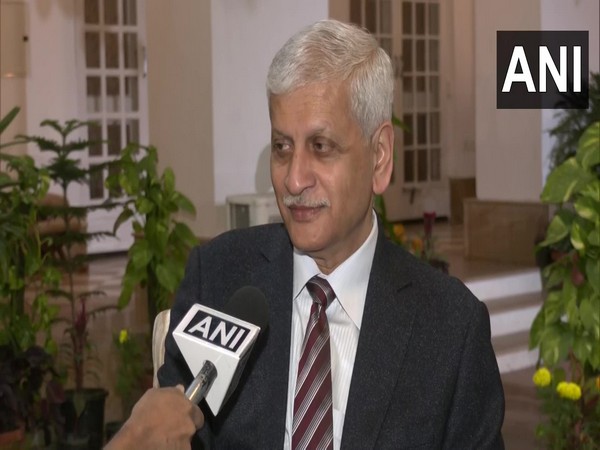Amid the public outrage over the acquittal of three accused in the Chhawala rape and murder case, former Chief Justice of India UU Lalit on Sunday said unless and until that guilt is completely established, circumstantial evidence case theory is not to be accepted.
Speaking to ANI, Justice Lalit said, “The element was purely based on circumstantial evidence. Law is clear that facts must point only in direction of the guilt of that man, unless and until that guilt is completely established, circumstantial evidence case theory is not to be accepted.”
On the public outcry on his judgment in the Chhawala rape case, Justice Lalit said the law is that the chain must get completed.
“There were actually no circumstances that could point in their direction conclusively. The law is that the chain must get complete, it is on account that the benefit of the doubt must flow in that direction,” added the former CJI.
The Supreme Court on Monday set aside the Delhi High Court order and acquitted three men who were awarded the death penalty by a lower court after being held guilty of raping and killing a 19-year-old woman in Delhi’s Chhawala area in 2012.
A bench of Chief Justice of India UU Lalit, S Ravindra Bhat, and Bela M Trivedi set aside the judgments and orders of conviction and sentence passed by the trial court and the High Court in the case.
The court gave the accused a benefit of the doubt and directed to set free the accused forthwith if not required in any other case.
However, the court also directed that the parents of the victim would be entitled to the compensation, if not awarded so far by the Delhi State Legal Services Authority, as may be permissible in accordance with the law.
“Every case has to be decided by the Courts strictly on merits and in accordance with the law without being influenced by any kind of outside moral pressures or otherwise,” the top court remarked.
Three men had moved the top court against capital punishment for the rape and murder of a 19-year-old girl in Delhi’s Chhawala.
The three convicts were awarded the death penalty after being held guilty of raping and killing a 19-year-old woman in 2012. The victim’s mutilated body was found in a field with multiple injuries due to assault with objects ranging from car tools to earthen pots.
A Delhi court in February 2014 convicted them. The capital punishment was confirmed by the Delhi High Court on August 26, 2014, saying they were “predators” moving on the streets and “were looking for prey”.
Three men, Ravi Kumar, Rahul, and Vinod were convicted under various charges dealing with kidnapping, rape, and murder.
The three convicts have challenged the Delhi High Court order in the Supreme Court.
A case was registered regarding this at outer Delhi’s Chhawala (Najafgarh) police station.
According to the prosecution, the offense was barbaric in nature as they first kidnapped the woman, raped her, killed her, and dumped her body in a field in Rodhai village in Haryana’s Rewari district.
“The woman was kidnapped by the three men in a car from near her house in the Qutub Vihar area on the night of February 9, 2012, while she was returning from office,” the prosecution had said.
The prosecution had also revealed multiple injuries on the woman’s head and other parts of her body and said that the three men had assaulted the woman with a car jack and an earthen pot. The crime was committed by Ravi Kumar with the help of the other two accused as the girl has refused the friendship proposal of Ravi Kumar, the prosecution had alleged. (ANI)
Read More:http://13.232.95.176/
